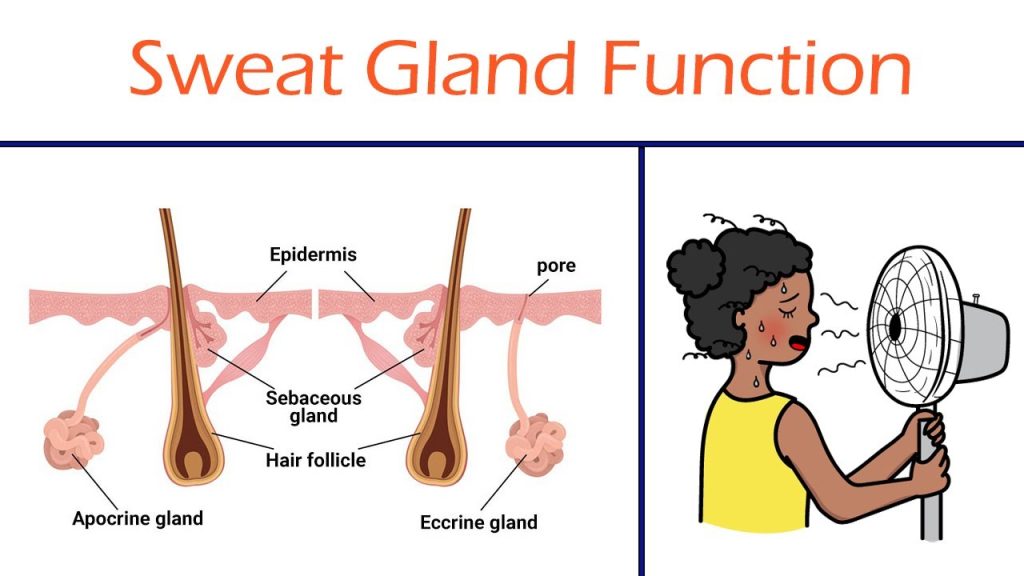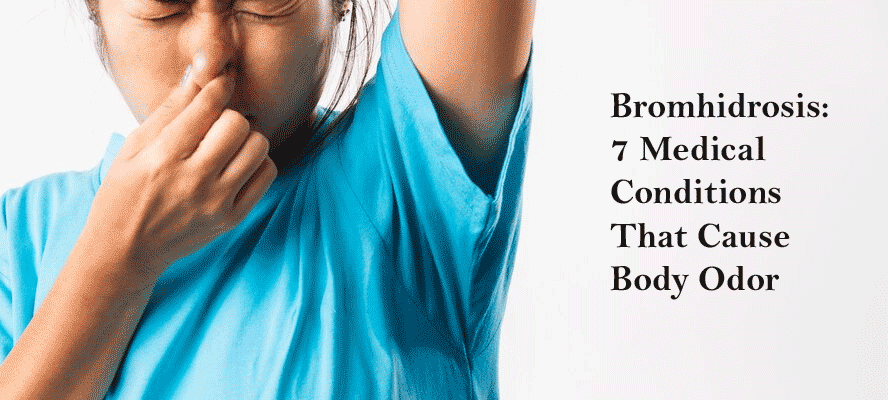The body can smell bad due to certain foods and habits that contribute to body odour. These factors include consuming strong-smelling foods and beverages, poor hygiene practices, excessive sweating, and smoking.
Additionally, alcohol consumption, certain medications, and certain medical conditions can also contribute to unpleasant body odour. It is essential to maintain good personal hygiene and make healthy lifestyle choices to reduce body odour and promote overall well-being.
What Causes Body Odor?
Body odour is a common issue that many people face, and it can be quite embarrassing. The main cause of body odour is sweat and the role bacteria play in chemical reactions. When sweat is produced by the sweat glands, it is initially odourless. However, as sweat comes into contact with bacteria on the skin’s surface, it undergoes chemical reactions that lead to the production of odour.
The bacteria that reside on our skin feed on the proteins and fatty acids present in sweat, causing the breakdown of these compounds. This process results in the release of odor-causing molecules. The type and amount of bacteria present on the skin vary from person to person, which is why body odour can differ in intensity from individual to individual.
There are several factors that can contribute to increased body odour. Poor hygiene, excessive sweating, and certain medical conditions can all play a role. Additionally, the consumption of certain foods such as garlic, onions, and spicy foods can lead to the excretion of compounds that contribute to body odour.
Understanding The Components Of Sweat

When it comes to body odour, understanding the components of sweat is crucial. Sweat is produced by two types of sweat glands: eccrine sweat glands and apocrine sweat glands. Eccrine sweat glands are present throughout the body, while apocrine sweat glands are mainly found in areas with hair follicles, such as the armpits and groin.
The composition of sweat includes water, electrolytes, and other substances like urea. However, body odor is not caused by sweat itself, but rather by the bacteria on the skin that break down sweat into different components, resulting in unpleasant smells. This process is more common in areas where apocrine sweat glands are present, as the sweat they produce contains more proteins and lipids that bacteria thrive on.
To combat body odor, it is important to maintain good hygiene practices, such as washing regularly and using antiperspirants or deodorants. Additionally, certain foods and habits can contribute to body odor, such as consuming strong-smelling foods like garlic and onions, excessive alcohol consumption, smoking, and poor diet. By being aware of these factors, individuals can take steps to minimize body odor and maintain good personal hygiene.
A List of 50 Super Healthy Foods: Transform Your Health with These Power-packed Foods!
Diet And Body Odor
The odor emanating from the body can often be attributed to our choice of foods and habits. Certain foods have an impact on body odor, while others leave a lasting smell due to their strong fragrance. Spices and garlic, for example, are known culprits in causing a distinct scent to arise from the body. These ingredients contain compounds that are excreted through sweat, leading to an unwanted odor. Similarly, the consumption of alcohol can also contribute to body odor. As alcohol is metabolized in the body, it is released through various means, including sweat and breath, resulting in a noticeable smell.
Personal Hygiene And Body Odor
Personal hygiene plays a crucial role in preventing body odor. Daily showering is important to cleanse the body and wash away any bacteria or sweat that can cause unpleasant smells. When choosing cleansers, it is advisable to opt for products that are specifically designed for the body, such as antibacterial soaps or body washes. These products help to eliminate bacteria that thrive in moist areas of the body.
In addition to showering, using antiperspirants and deodorants can help to control body odor. Antiperspirants work by reducing sweat production, while deodorants help to mask odor. Look for products containing ingredients like aluminum chloride or zinc oxide for effective sweat reduction. Moreover, it is important to apply these products to clean and dry skin to ensure their effectiveness throughout the day.
Medical Conditions And Body Odor

One of the reasons why the body can smell bad is due to certain medical conditions. Hyperhidrosis is a condition characterized by excessive sweating, leading to an unpleasant body odor. Individuals with hyperhidrosis may experience profuse sweating even when the body doesn’t need to cool down.
Bromhidrosis is another medical condition that can result in foul-smelling sweat. This condition is caused by the breakdown of sweat into acids by bacteria on the skin. The acids released give rise to an unpleasant odor.
Trimethylaminuria, also known as Fish Odor Syndrome, is a metabolic disorder where the body is unable to break down trimethylamine, resulting in a fishy body odor. This condition is caused by a defective gene that affects the body’s ability to process certain compounds found in certain foods.
It’s important to note that while these medical conditions contribute significantly to body odor, they can be managed with proper medical care. Identifying the underlying cause and seeking appropriate treatment can help individuals overcome embarrassing body odor issues.
7 Energizing Power Foods to Start Your Day | Healthy Breakfast
Tips For Reducing Body Odor
Bad body odour can be a result of various factors, including certain foods and habits. Proper hygiene practices play a crucial role in reducing body odour. Regularly bathing, showering, and using antibacterial soaps can help eliminate bacteria that cause unpleasant smells. Additionally, clothing choices and fabrics can contribute to body odour. Wearing loose-fitting clothes made from natural fibres like cotton can allow the skin to breathe and minimize sweat retention and odour. It is also important to manage stress levels, as stress can lead to increased sweating and exacerbate body odour. Engaging in stress-reducing activities such as exercise, meditation, and deep breathing can help mitigate this issue. By incorporating these tips into your daily routine, you can effectively manage body odour and feel more confident in your personal hygiene.
Natural Remedies For Body Odor
Body odour is often a result of certain foods and habits. Knowing which ones are responsible can help tackle the issue naturally. From garlic and onions to excessive sweating, understanding the causes can lead to effective remedies.
Body odor can be unpleasant and embarrassing. However, there are natural remedies available to help combat this issue.
Natural Deodorants
Using natural deodorants can be a great way to control body odor without the use of harsh chemicals. These deodorants are typically made with natural ingredients like baking soda, arrowroot powder, and essential oils which help neutralize odor-causing bacteria. Look for deodorants that are aluminum-free and have long-lasting effectiveness.
Herbal Remedies and Essential Oils
Several herbs and essential oils have natural antimicrobial properties that can help eliminate body odor. Sage, rosemary, thyme, tea tree oil, and lavender oil are known for their ability to inhibit bacterial growth and neutralize unpleasant odors. They can be used in the form of essential oils added to baths or diluted with carrier oils for topical application.
Home Remedies for Eliminating Odor
In addition to natural deodorants and herbal remedies, there are also simple home remedies you can try. Bathing regularly, wearing clean clothes made of breathable fabrics, using baking soda as a natural deodorizer, and maintaining good personal hygiene are all effective ways to reduce body odor. You can also consider applying a paste of lemon juice and rose water to your underarms, as the acidity of lemon helps control bacteria growth and rose water provides a pleasant fragrance.
When To Seek Medical Help
The body can sometimes emit unpleasant odors due to various factors, including certain foods and habits. However, in some cases, persistent and severe body odor may require medical attention.
Unusual changes in body odor can be a cause for concern and could indicate an underlying medical condition. It is important to seek medical help if you experience consistent and strong body odor that does not go away even with proper hygiene practices.
There are several medical conditions that can contribute to persistent body odor. These conditions may include hormonal imbalances, liver or kidney problems, diabetes, or certain infections. It is necessary to consult a healthcare professional to determine the underlying cause and receive appropriate treatment.
If you are experiencing any unusual or concerning changes in your body odor that do not improve with regular hygienic practices, it is best to consult a healthcare provider. They can help identify any underlying medical conditions and provide guidance on managing and treating the issue.
Howdy, folks! Welcome aboard this unwashed journey where we’re about to uncover some stinky truths. Strap in, sit back, and let us ride on the scent trail of habits that could be secretly sabotaging your “smell appeal.” Alright, the laundromat’s closed, here we go!
10 Of The Most Nutrient-Dense Foods You Can Eat : Boost Your Health with These Power-Packed Foods!
I. Introduction: Unraveling The Link Between Habits and Body Odor
A. Understanding Body Odor: An Overview
So here’s the deal: Sweat in itself doesn’t stink. Yep, you heard that right. You see, your body has two types of sweat glands. You’ve got your fun-loving, hang-out-in-the-armpits-and-genital-area apocrine glands, and your do-gooder eccrine glands that cover most of your body. It’s only when sweat from the former type meets up with bacteria on the skin that things start to get a bit eau de rot.
On the palette of body odor, everyone’s got their own unique blend—like a vintage wine but not as enjoyable. You might ask, why does it matter? Well, because it affects your personal relationships, your professional life, and most importantly, your self-confidence.
B. How Habits Influence Body Odor: An Exploration
Here’s the thing, friend, your life choices play a big role in determining your personal scent. Think about it like cooking a stew. If you throw in garlic, onions, or other flavorful foods, that stew’s gonna smell strong! The same principle applies to your body. Your diet, personal hygiene, lifestyle choices, and products you use impact how you smell!
C. The Importance of Breaking Away from Bad Habits
Whenever you’re facing a tricky situation, it’s rational to mend what’s causing the issue, right? So we’re gonna dodge that pesky odoma with a quick irish goodbye. Adiós, bad habits!
II. Examination of Dietary Choices Impacting Body Smell
A. The Role of Certain Types of Food: Garlic, Spices, and More
Look, I love a good garlic bread or spicy curry as much as the next person, but it’s not exactly the key to charming everyone within a 10-meter radius. Certain foods like garlic, onions, and spices can seep into your sweat, transforming you into a human Old Spice commercial—except, not in a good way.
B. Impact of Alcohol and Caffeine Consumption
Now, let’s be real. Who hasn’t needed that extra cup of soul-reviving coffee in the morning or a spirited nightcap once in a while? But overdoing it may make you smell like you’re brewing coffee from a distillery. When you consume large amounts of alcohol or caffeine, your body sweats it out, and there goes your chance of smelling like a field of lavender.
C. The Consequences of Poor Hydration
Folks, your body is like a sponge. Without enough water to soak up, it can dry out and start producing concentrated, aggressive-smelling sweat. It’s like skipping dilution class in Chemistry 101, only stinkier. Drink plenty of water so your body doesn’t turn into the Sahara of bad odors.
III. Evaluating the Impact of Poor Personal Hygiene
A. The Consequences of Skipping Showers
Are you on a shower strike or something? Because missing out on daily showers won’t earn you any hygiene medals. Not showering every day allows bacteria to party on your skin resulting in stronger BO and well, let’s just say it: Yuck!
B. The Effect of Irregular Clothes Washing
Your clothes can become a bacteria Airbnb if you wear them too often without washing. Ever sniffed a hockey jersey or gym shorts straight out of the locker? Yeah, you don’t want to smell like that.
C. Understanding the Importance of Oral Hygiene
Bad breath or halitosis is not something you want following you around. Brushing, flossing, and regular dental check-ups are your BFF’s in the war against your dragon breath.
IV. Lifestyle Choices That Worsen Body Odor
A. The Impact of Sedentary Lifestyle and Lack of Exercise
No, a couch potato lifestyle won’t give you French fry-scented sweat. But without regular exercise to help your body detox through sweat, things might begin to smell a bit off under the hood.
B. Smoking and Its Influence on Body Smell
Does puffing cigarettes make you smell like a BBQ feast? Guess what, not even close! The smoke lingers on your clothes, breath, and skin, making you smell like an ashtray—ain’t no Febreze that can cover that up.
C. The Side Effects of Stress and Lack of Sleep on Body Odor
When you’re stressed or lack sleep, your body kicks into survival mode and pumps out cortisol and adrenaline—these release sweat from apocrine glands. So, chronic stress or sleep deprivation can wage war on your smell appeal.
V. Unhealthy Practices: Products and Substances That Enhance Body Odor
A. The Negative Effects of Certain Deodorants and Perfumes
Ironically, some deodorants and perfumes can make you smell worse. Yeah, that rose scent can turn ugly when blended with sweat. Always opt for quality products and test them on your skin type.
B. Addressing the Use of Harmful Synthetic Fabrics
Plastic tutus aside, synthetic fibers can be a nightmare for your personal scent. They smother pores, encourage sweat, and develop a bad microbiome quicker than natural fibers, creating a bacterial hotspot.
C. The Impact of Drug Abuse on Body Odor
Drugs, along with their ample negative effects on overall health, can influence your personal odor too. Misuse of drugs can amplify toxins and waste in your body, resulting in an off-putting smell akin to toxic waste. Seriously, not cool.
VI. Breaking the Cycle: Steps Toward Overcoming Smelly Habits
A. Incorporating Healthy Dietary Choices
A good rule of thumb is to consider if it’s good for your health, it’s probably good for your body odor too. Foods rich in chlorophyll like leafy greens, and those packed with natural antioxidants, like berries, can deodorize your body from the inside out.
B. Maintaining Personal Hygiene
By far, the simplest way to combat bad smell is regular showers, wearing clean clothes, and brushing your teeth twice a day. It’s not rocket science, it’s just being considerate to everyone within your sniff zone.
C. Adapting a Healthy Lifestyle: Exercise, Sleep, and Stress Management
Like an onion, a healthy lifestyle has layers. Regular exercise, restful sleep, and stress-busting activities like meditation or yoga can sweeten your personal BO bouquet.
VII. Conclusion: Changing Habits for a Fresher You
A. Recap of the Bad Habits and Their Impact on Body Odor
In a nutshell, if you’ve been eating garlic like an Italian grandma, skipping showers like a teenager in protest, sleeping like a bat (during the day, that is), and downing coffee and booze like they’re elixirs of eternal life—oh, and dabbling in drug misuse while you’re at it—you’re basically asking to smell like a gym bag from the 70s.
B. The Path Forward: Incorporating Positive Habits
The good news is, making a few lifestyle changes can put you on the merry path to smelling fresh as a daisy—in a good way. By stopping that garlic fest, drinking more water, washing regularly, and managing your stress, you’re setting up for some impressively pleasant pong potential!
C. Final Thoughts: Embracing Change for Body Wellness
The reality check is––your body odor can be a health indicator; it’s like a free health check-up in your armpit. So heed its whispers (or yells), and take care of yourself! After all, change stinks, but not changing might stink even more.
Master These Power Words for a Sparkling Smile
Frequently Asked Questions On Why Does The Body Smell Bad? Foods And Habits That Are Responsible For This
Why Do Certain Foods Cause Body Odor?
Certain foods can cause body odor due to the presence of sulfur compounds. These compounds are released when the body breaks down certain foods during digestion. Some foods known to cause body odor include onions, garlic, spicy foods, and certain types of meat.
What Does Bad Body Odor Say About Your Health?
Bad body odor can indicate underlying health issues. It can be a sign of poor hygiene, certain medical conditions, or hormonal changes. Identifying the cause of the odor can help address any health concerns and improve personal well-being.
Can Poor Eating Habits Effect Body Odor?
Poor eating habits can affect body odor. Certain foods, like garlic and onions, can cause unpleasant smells when they are metabolized in the body. Additionally, an unhealthy diet can lead to imbalances in the gut, which can also contribute to body odor.
It’s important to maintain a balanced diet for overall well-being and odor control.
Why Do I Smell Bad Food?
You might be smelling bad food due to the presence of bacteria or mold in it. These microorganisms release compounds that give off unpleasant odors. Make sure to store food properly and discard anything that looks or smells suspicious to avoid any health hazards.
Conclusion
To maintain a fresh and pleasant body scent, it’s essential to pay attention to our diet and habits. Certain foods, such as garlic and onions, can contribute to body odor, while habits like smoking and excessive alcohol consumption can worsen the situation.
By adopting healthier eating choices, staying hydrated, and practicing good hygiene, we can minimize unpleasant body odors and feel more confident in our daily lives. Remember, taking care of our bodies inside and out is the key to smelling good naturally.







Be First to Comment